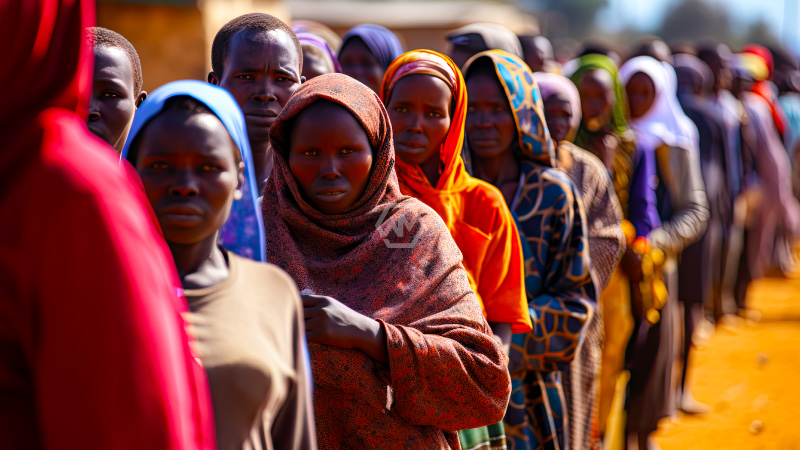- Escaping Conflict and Hunger: Sudanese refugees in Chad are fleeing both violence in Darfur and severe food shortages, with over 600,000 seeking refuge.
- Insufficient Aid: Limited funding has forced the WFP to reduce food assistance, exacerbating malnutrition and health issues among refugees.
- thnic Tensions: The arrival of both Sudanese Arabs and non-Arab Masalit refugees in Chad raises concerns about potential ethnic conflicts spilling over the border.
Sudanese refugees in Chad are fleeing a dual crisis of violence and starvation. The conflict between the Sudanese Armed Forces (SAF) and the Rapid Support Forces (RSF) has displaced millions, with over 600,000 seeking refuge in Chad.
The influx of refugees is straining resources in Chad and raising concerns about ethnic tensions. Sudanese Arabs and non-Arab Masalit refugees, both escaping the crisis, could potentially bring their conflicts across the border.
Sudanese Refugees in Chad: Fleeing War, Facing Hunger
Sudanese refugees are flooding into Chad, escaping the brutal conflict between the Sudanese Armed Forces (SAF) and the Rapid Support Forces (RSF). Over 600,000 people have crossed the border, seeking safety from the violence that has ravaged Darfur since April 2023.
In Chad, refugees are confronted with severe food shortages. The World Food Programme (WFP) has been forced to cut back on food assistance due to limited funding, leaving many refugees malnourished. This reduction in aid has made it difficult for families to sustain themselves, increasing the risk of health problems.
The situation is particularly dire for children, who are especially vulnerable to malnutrition and diseases like malaria. Many refugees trade their WFP rations for bulkier, less nutritious food to stave off hunger temporarily, but this only worsens their nutritional deficiencies and health conditions.
Adding to the complexity, the arrival of both Sudanese Arabs and non-Arab Masalit refugees raises concerns about potential ethnic tensions spilling over into Chad. Local authorities stress the urgent need for more humanitarian aid to support all refugees and prevent conflict within the host communities.
The situation for Sudanese refugees in Chad is critical, with the dual crises of war and hunger forcing thousands to seek refuge. Urgent international support is needed to provide adequate food, medical care, and resources to prevent further malnutrition and potential ethnic conflicts, ensuring that these refugees can find some semblance of safety and stability.
“We’ve seen the impact of the reduction as more people became malnourished,” said Vanessa Boi, WFP emergency officer in Chad.



